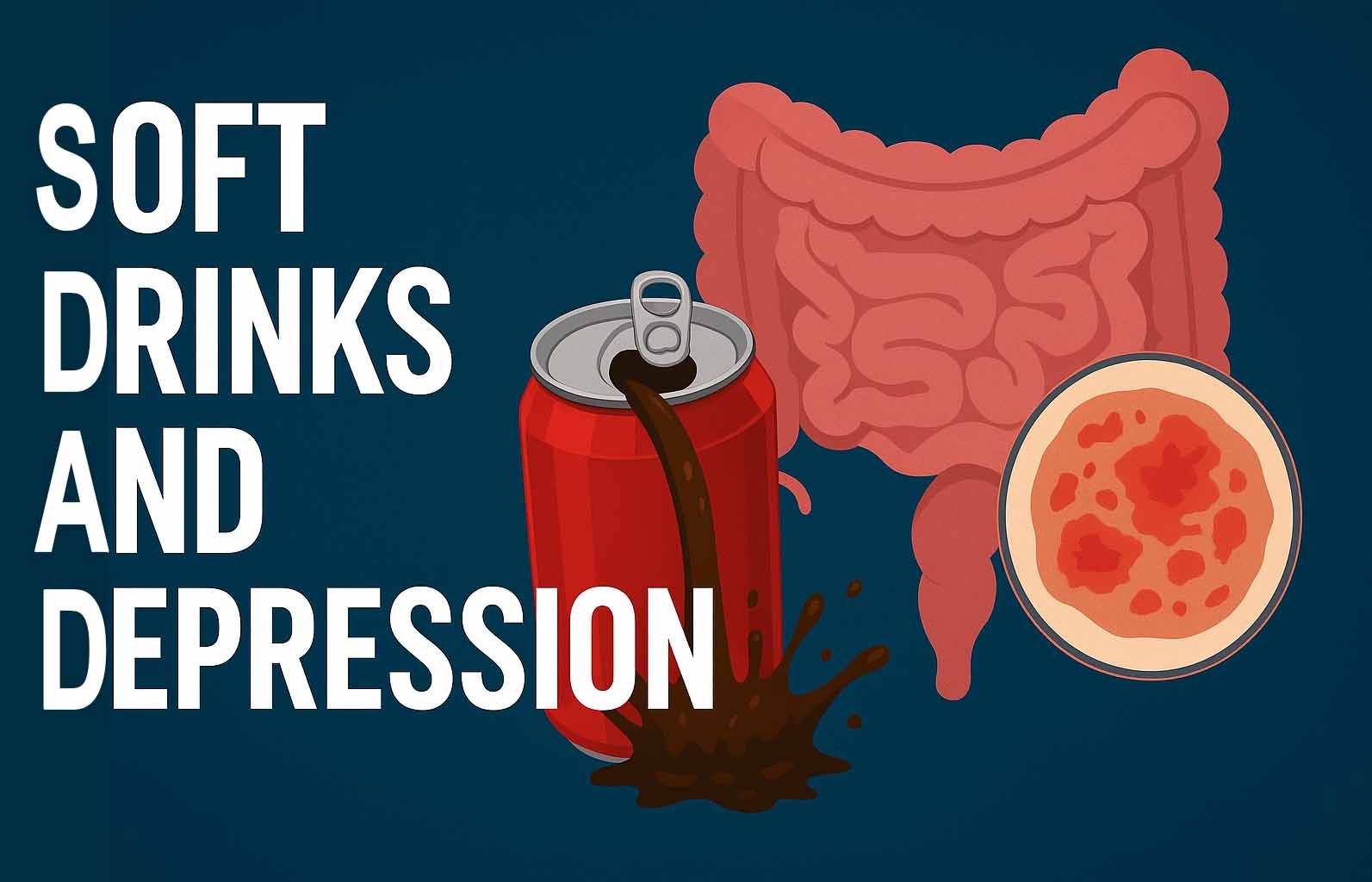What the Study Found
Researchers analyzed dietary data and stool samples from more than 900 adults, including over 400 patients with major depressive disorder (MDD). They discovered that people who drank more soft drinks were significantly more likely to have depression and more severe symptoms — especially women.
Microbiome analysis revealed that high soft drink intake was linked to increased levels of a gut bacterium called Eggerthella, previously associated with inflammation and mood disorders. Statistical modeling showed that changes in this bacterium partly explained (about 4–5%) the link between soft drinks and depression risk.
Possible Mechanism
Excess sugars or artificial sweeteners in soft drinks may alter the gut environment, promoting bacteria that trigger inflammation or affect neurotransmitter pathways such as serotonin metabolism. This “gut–brain axis” disruption could, in turn, influence mood and emotional health.
Key Takeaways
- Soft drink consumption correlates with higher depression risk, mainly in women.
- Microbiome changes, particularly increases in Eggerthella, may play a mediating role.
- Causality remains unproven — more experimental and longitudinal studies are needed.
Why It Matters
Beyond the well-known metabolic risks, these findings highlight a potential mental health dimension to sugary or artificially sweetened beverages. Understanding how diet shapes the gut–brain connection may open new avenues for preventing and managing mood disorders.




